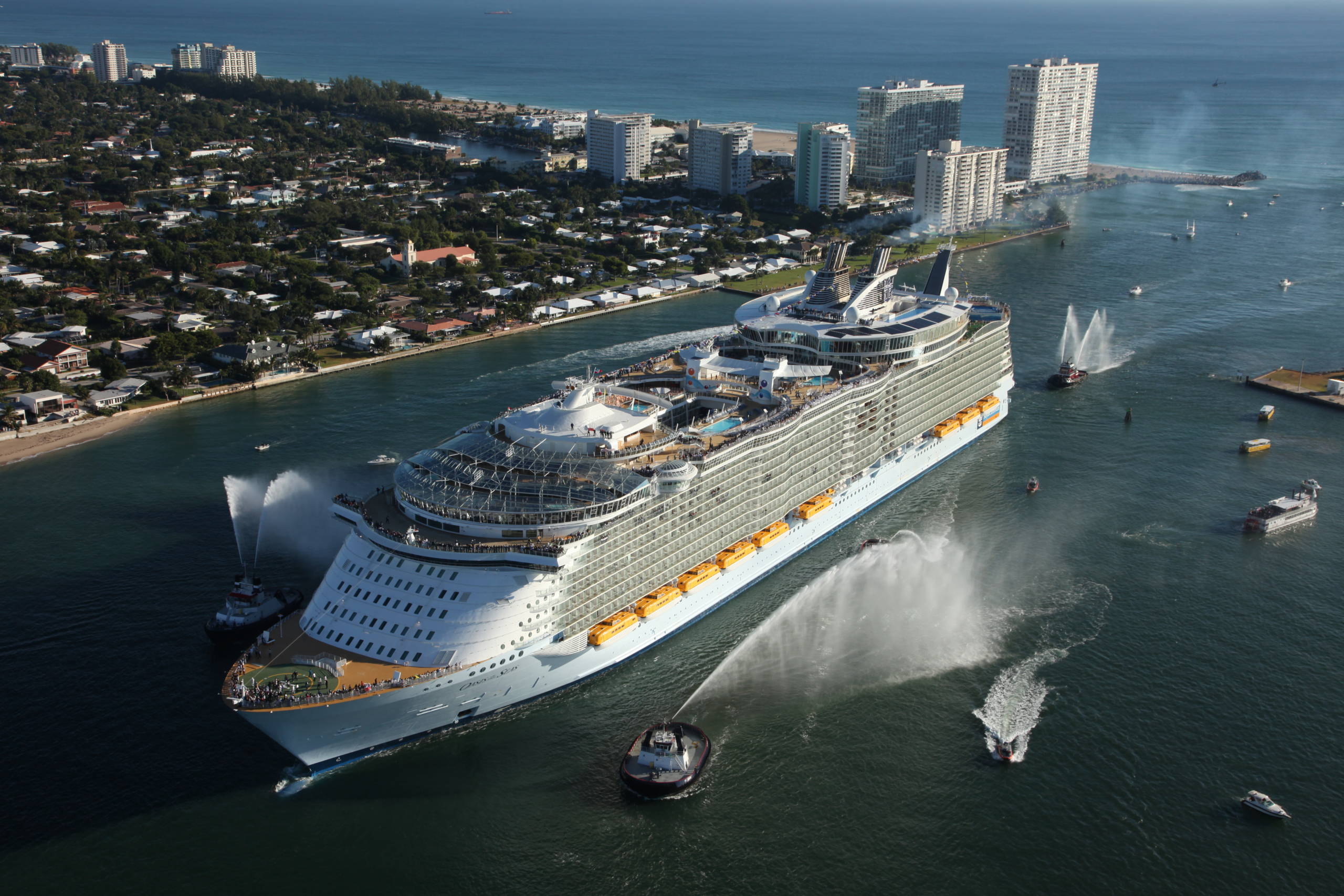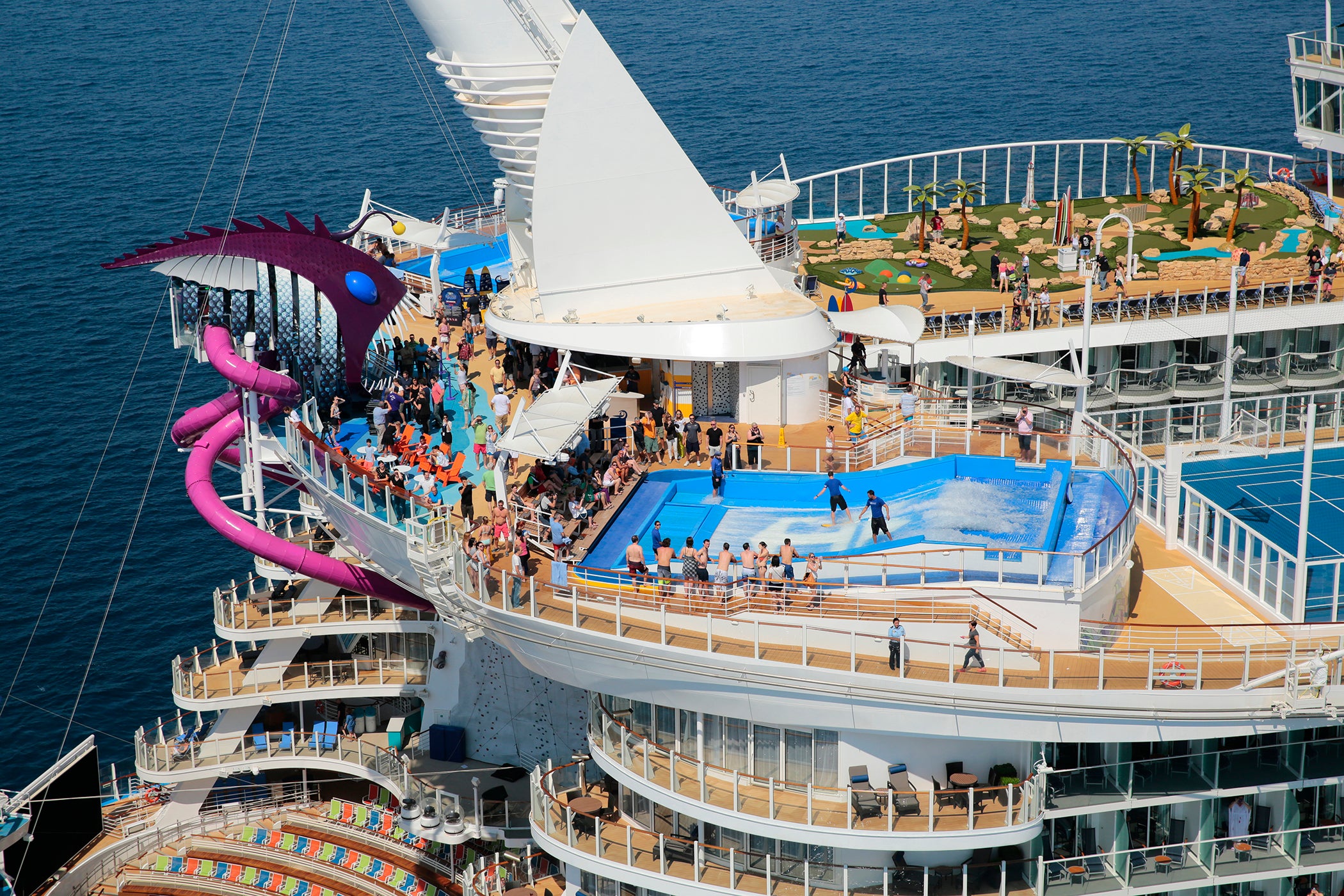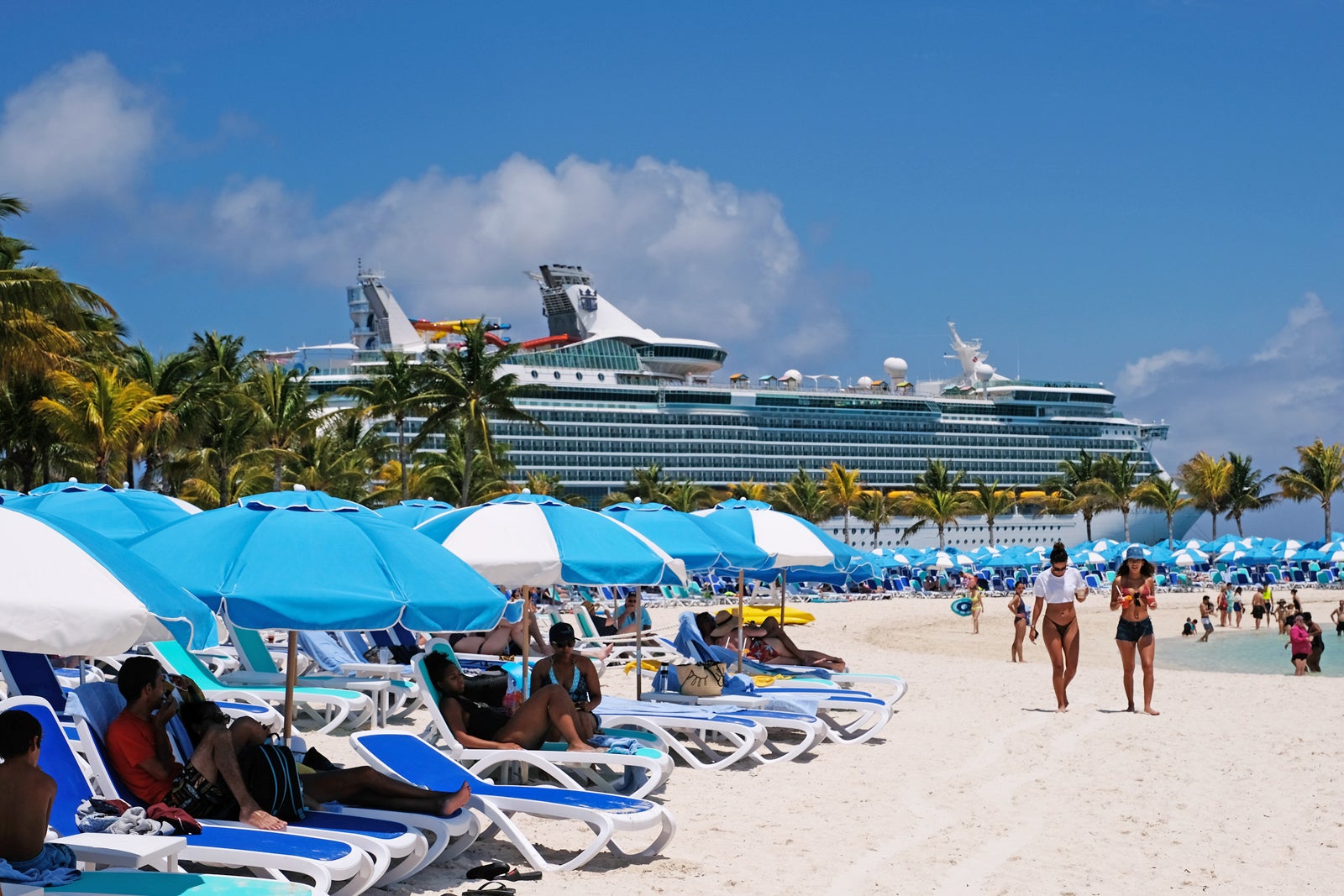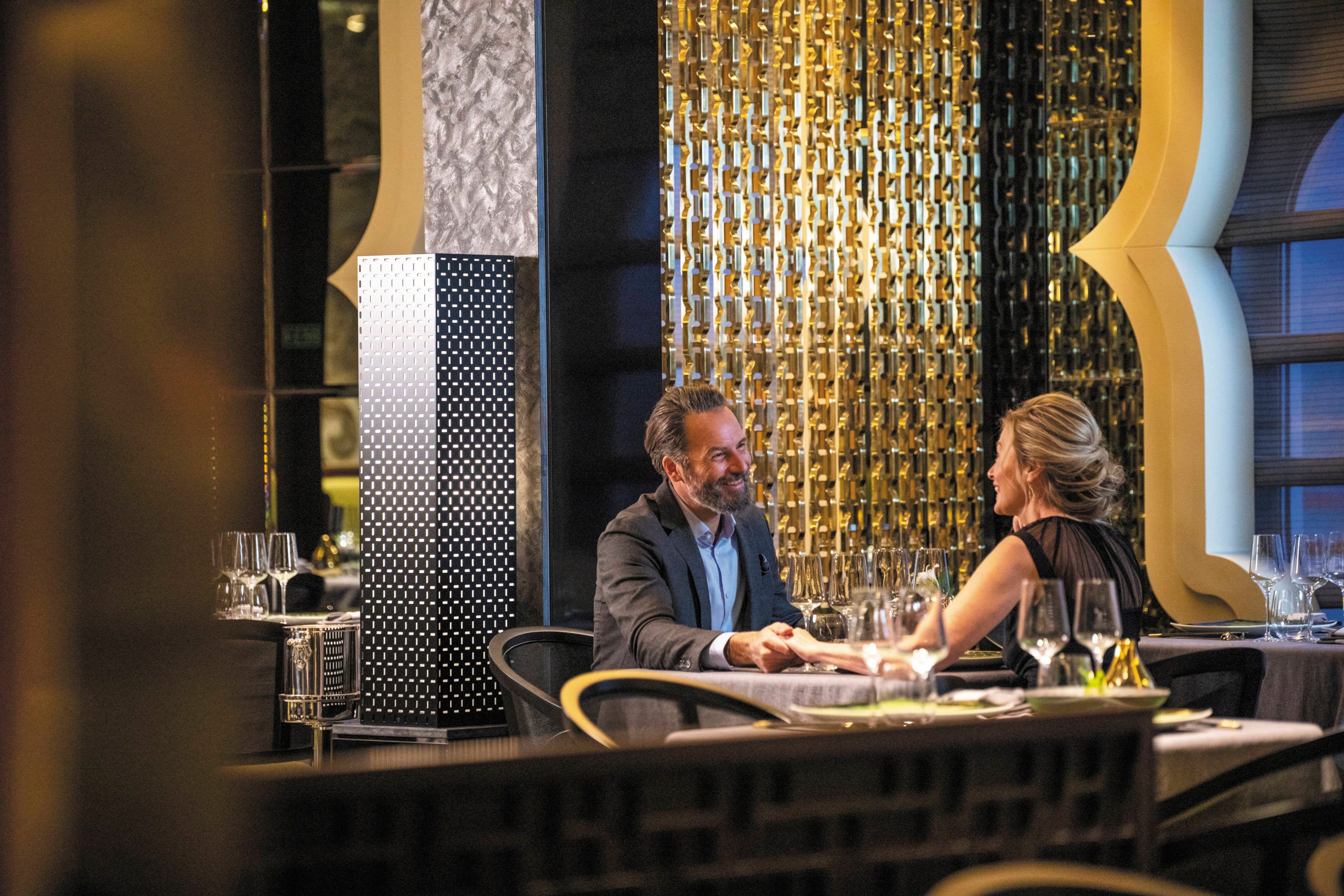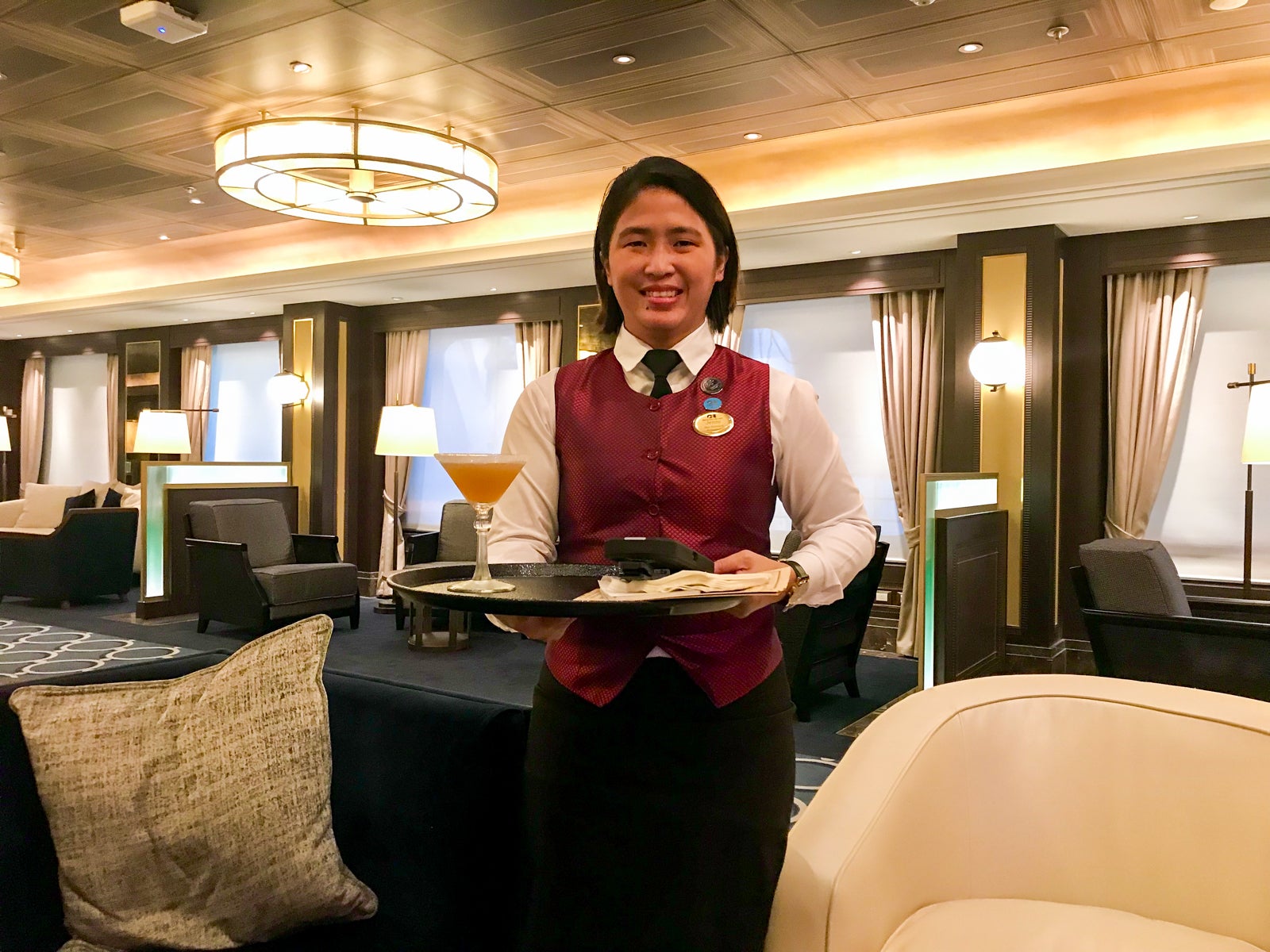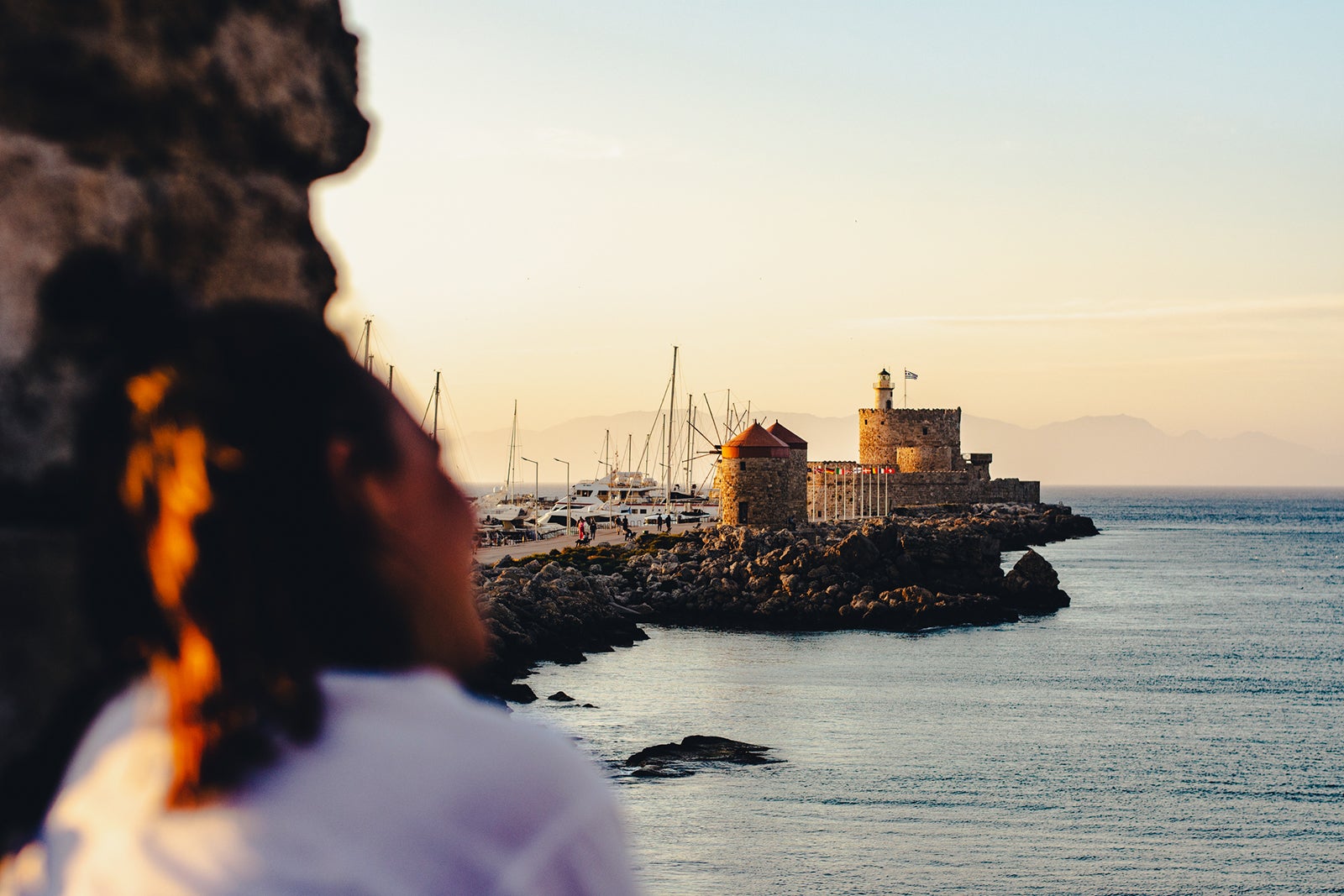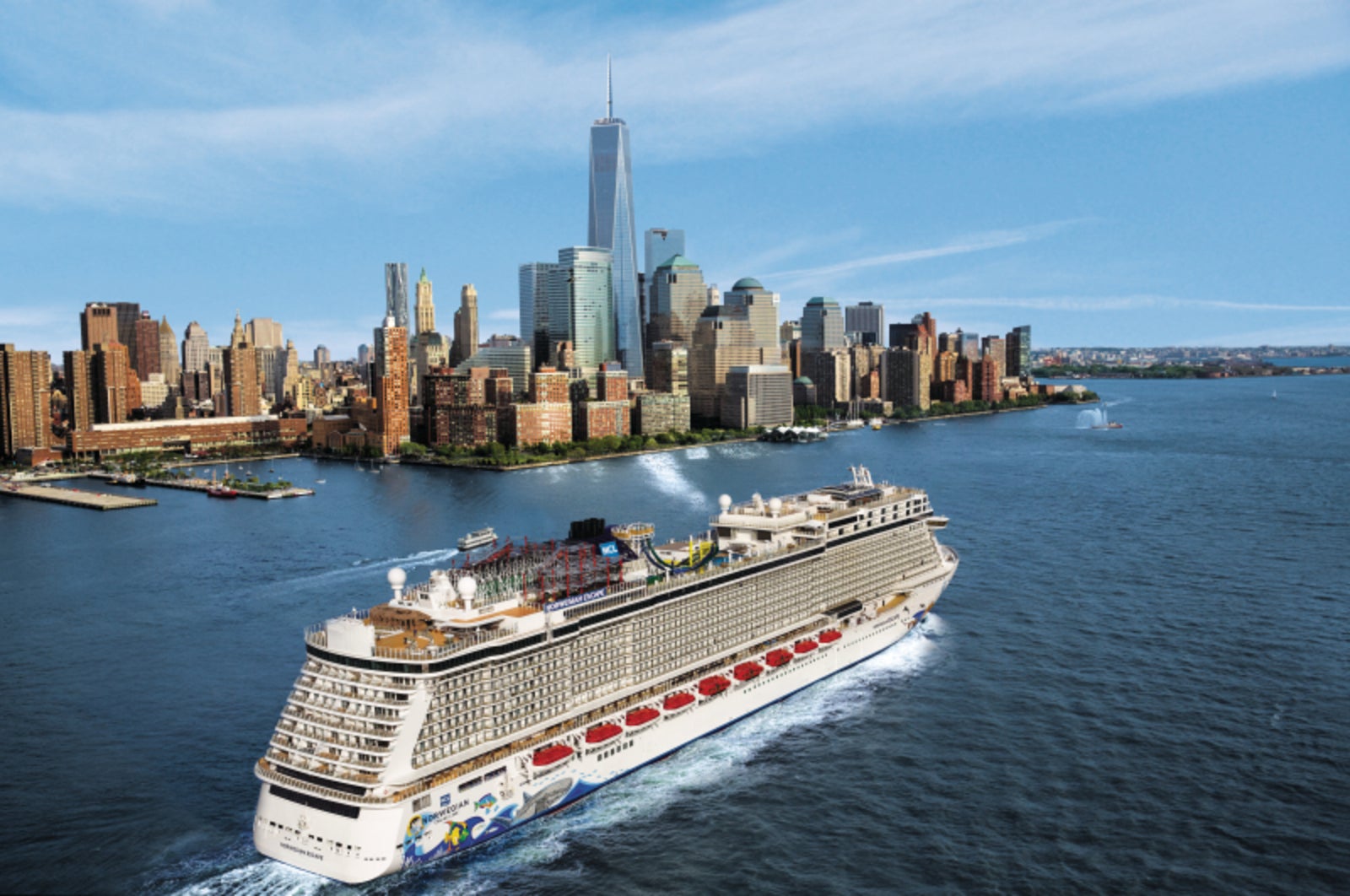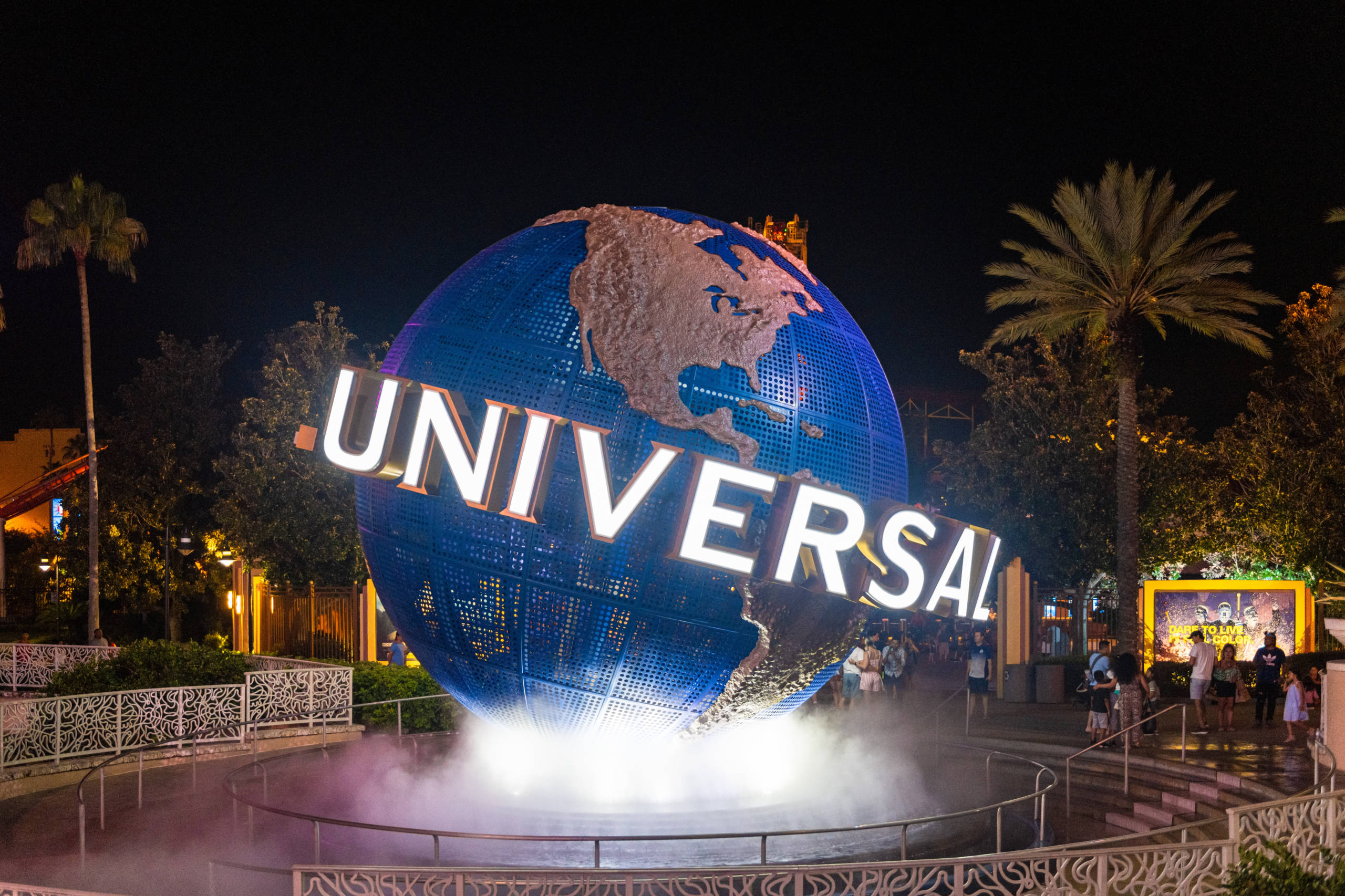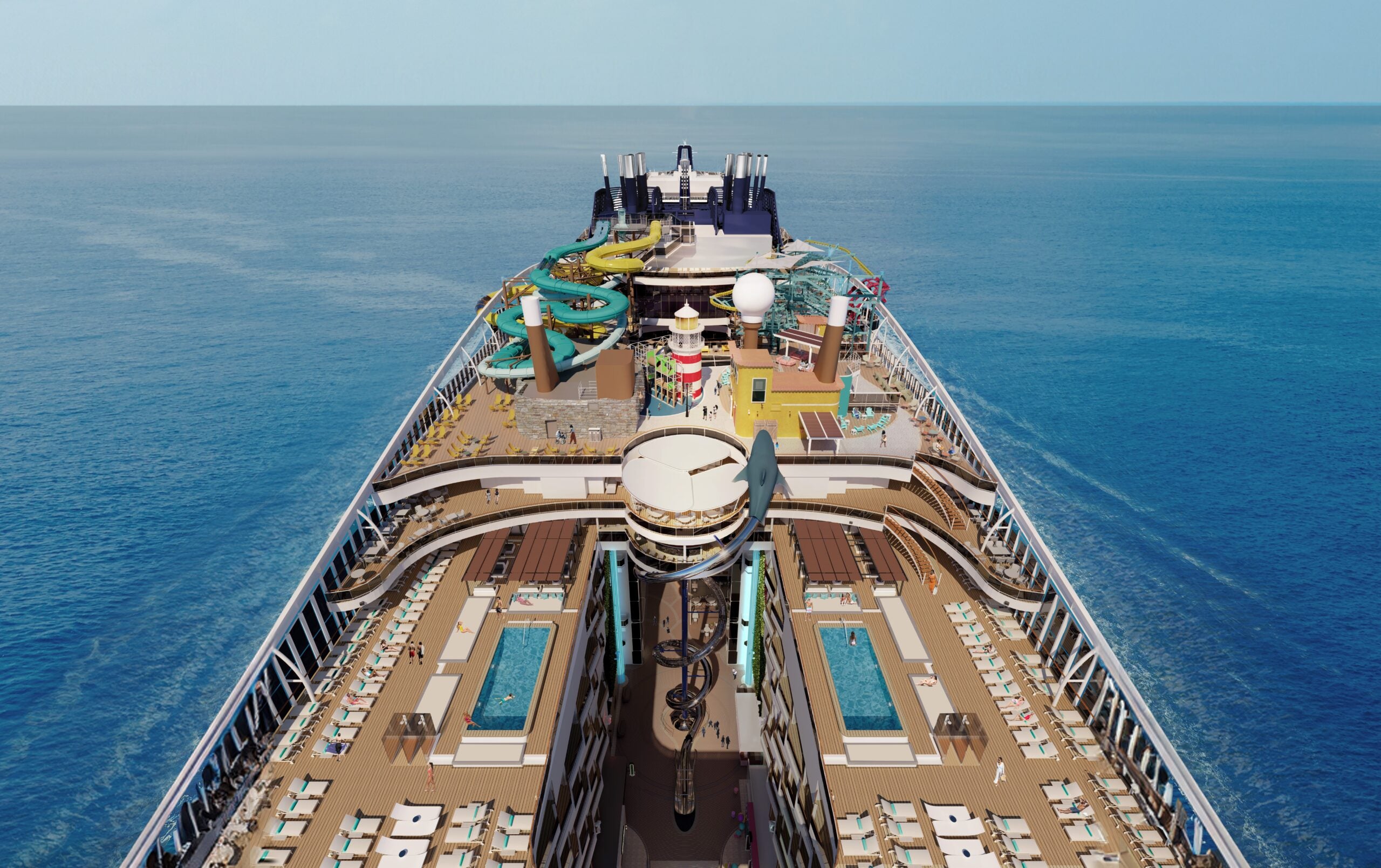Is a cruise right for you? Start by asking yourself these 7 questions
If you’ve landed on this page, you’re probably thinking about taking a cruise for the first time. But you’re also wondering if a cruise is really right for you.
You’re now in a precarious position — one where you might be unduly influenced by friends, family or even strangers with thoughts on cruising that might not necessarily be helpful.
If you ask a cruising fan whether you should go on a cruise, the chances are she or he is going to tell you just one thing: “All cruises are stupendous. There’s no way you won’t love it.”
For more cruise guides, news and tips, sign up for TPG’s cruise newsletter.
The world of cruise fans is like that. It’s a bit of a cult.
On the flip side, if you ask a non-cruiser whether you should try a cruise, you might get the opposite response: “Why would anyone want to go on a cruise?”
Non-cruisers are non-cruisers for a reason.
The truth is, neither response is what you need to make an informed decision.
The answer to whether a cruise is right for you is much more nuanced. It depends a lot on what sort of traveler you are. Do you like trips that are well planned out in advance or trips that start with no plan at all? Are you a fan of resort environments? Do you like group travel? Do you love being pampered above all else?

Daily Newsletter
Reward your inbox with the TPG Daily newsletter
Join over 700,000 readers for breaking news, in-depth guides and exclusive deals from TPG’s experts
And, perhaps most important: What do you like to eat when you’re away from home?
The answer to whether you will like a cruise depends on stuff like that — and much more.
As a travel writer who has specialized in cruising for more than two decades, I’ve been on a lot of cruises (more than 200 on nearly 170 distinct ships), and I’ve met thousands of cruisers. I’ve talked to many of them about what they like and don’t like about cruising.
What I’ve learned during all these conversations is that, indeed, a cruise is not for everyone – even if it can be a wonderful experience for a lot of people.
Related: The 5 best cruise lines for families
When people ask me personally whether they should try a cruise, I start by telling them that it depends. And then I tell them to ask themselves the seven questions below. Call it my “should-I-cruise” litmus test.
In answering such questions, you’ll start to get a sense of whether you’re ready to join the ever-growing cruising cult — or if you’d rather leave the high seas (and rolling rivers) behind.
Do I prefer trips that are heavily planned out in advance or left up to serendipity?
There are some people who like to head off on vacation with no idea of where they will be or what they will be doing from day to day. They like the flexibility that comes with not having too much planned ahead of time. Others like to have their travel schedules much more mapped out in advance.
Cruising is best suited to the latter group.
Sure, you will have some flexibility in what you can do on any given day of a cruise. But the broad outline of your trip is pre-planned and set in stone. As with motorcoach tours, it’s an “if it’s Tuesday, it must be Belgium” kind of vacation.
Related: A beginner’s guide to picking a cruise line
If you’re sailing for a week in the Western Mediterranean, for instance, you’ll probably get eight hours in Rome (after docking in the nearby port of Civitavecchia). If you’re so blown away by the city that you want to stay over an extra night (and we bet you will be), you’re out of luck. You’ll be due back at the ship by the late afternoon for the sail-away to the next port — probably Livorno, Italy (the gateway to Florence and Pisa) or Naples, Italy.
Once at that next port, you’ll get another eight hours to explore before needing to be back on board for the sailing to the next destination. It’s all been arranged in advance.
The advantage of such a pre-planned vacation, of course, is that it takes away a lot of the hassle that comes with traveling. Your cruise line has done all the heavy lifting of figuring out an ideal, multi-day getaway for you. The cruise line is selling you a complete package of travel needs including a room, food and entertainment, and it’ll deliver you almost daily to someplace new to explore. On some cruises — particularly river cruises and so-called expedition cruises (voyages to very remote places on small, hardy ships) — the lines even pre-arrange all of your daily tours. You basically just show up.
Do I enjoy travel experiences that revolve around a single resort that offers lodging, meals and activities?
Cruise ships will take you to multiple destinations on a single trip. But at their core, what they offer is closer to what you’ll find at an all-inclusive resort on land than any other sort of travel experience. At least, this is the case for the bigger cruise ships that account for the majority of all cruise travel.
Even during a very port-intensive itinerary on most ships, you likely will spend the vast majority of your vacation hours on board your vessel. Unless you book a rare overnight excursion, you will spend all of your nights on board your ship, and you’ll probably eat most of your meals on the vessel, too. On most ships, all or almost all of your evening entertainment also will be ship-based.
Many people just love this sort of vacation. It’s a lot like going to Disney World near Orlando or to an all-inclusive Sandals resort, where you can spend a wonderful week without ever leaving the property.
For others, it’s too much vacation time devoted to a single, contained resort environment that doesn’t leave enough time for exploring the outside world.
Am I OK with crowds?
There are plenty of small cruise vessels that are like boutique hotels, with just 50 or 100 rooms. But the ships that the vast majority of cruisers sail on today are far bigger than that, and they generally are packed with a lot of people.
The world’s biggest cruise ships, such as the Oasis-class vessels operated by Royal Caribbean, often sail with more than 6,000 passengers apiece. And that’s not including the 2,000 or so crew members that are aboard the biggest cruise vessels. If you book one of these vessels, you could be sharing your vacation with more than 8,000 other people.
These are very big ships, mind you, with lots of room to spread out. Royal Caribbean’s Icon of the Seas — the world’s largest cruise ship — has 18 passenger decks, quite a few of which are devoted to a seemingly endless array of family-friendly attractions, restaurants, lounges, bars and other venues that can absorb huge numbers of vacationers.
Related: The 6 classes of Royal Caribbean ships, explained
But if the idea of vacationing at a resort where you are one of thousands doesn’t appeal to you, you probably should stay away from most of the vessels operated by the major cruise lines. You might be better off with a land-based trip — or a sailing on one of the lines such as Windstar Cruises or Ponant that specialize in more intimate sailings on very small ships.
Am I comfortable touring as part of a group?
In some respects, cruises are very similar to group tours on land. You will be traveling for your entire voyage with one (very big) group of people, and you may find yourself in a group setting for some or all of your touring in ports.
Just how much of a group-tour feel your cruise has will depend a lot on which ship you are on and how you arrange your port activities. On river cruises and expedition cruises, in particular, off-ship activities often are generally done as a group. Group tours in ports are part of the package for which you have paid in advance. On traditional ocean-going ships, you generally have more flexibility to tour on your own in ports versus joining a group.
Related: Which cruise brand is best for you? A line-by-line guide
On traditional ocean-going ships, many ship-organized shore excursions will be group outings where you will join as many as 30 or 40 of your fellow cruisers with a guide. Often, these tours involve traveling with your group on a motorcoach to reach whatever sight or sights you are touring. In short, they often have the feel of a bus tour.
This is the case even with some upscale and luxury lines, though they sometimes put fewer people on a single motorcoach for tours.
That said, when sailing on many traditional ocean-going vessels, you can arrange for private tours with a guide in ports for just you and your family (sometimes the ship will do this for you; other times, you will have to find an outside vendor). You also can just head out into a port on your own and do your own exploring — at least in most cases.
Is ‘eating local’ critical to me when traveling?
For some people, eating local is a critical part of the travel experience. Whether it’s the locally famous pesto over trofie pasta in the trattorias of Genoa, Italy, or the pad thai on the street corners of Bangkok, they want to savor the local flavors as often as they can. For others, having access to the familiar dishes of home when traveling is just as important — or more.
Cruise ships typically appeal more to the second category of people.
Cruise ships typically offer cuisine in their onboard restaurants that is in keeping with what their customers will find at home. You’ll find American-style steakhouses on many bigger ships and often Italian restaurants, usually serving an Americanized style of Italian food. There are also American-friendly Asian eateries and main restaurants that offer a mix of classic international cuisine. Plus, there are usually fast-food options, including burgers and pizza.
Often, these eateries and the dishes they offer have little to do with the destination to which you’re sailing. But they do offer a lot of things that you probably know and love.
If that sounds just right to you, a cruise is probably a good choice for a vacation. If you’re such a foodie that you couldn’t imagine visiting Barcelona without spending a night hopping between tapas eateries or visiting Rome without a dinner at La Pergola, a cruise might not be the best choice.
Related: The 9 best restaurants at sea
You can try out the local foods in the destinations your ship visits during port calls, of course. But the reality of cruising is that many ships only visit ports during the daytime and sail away to their next destination before dinnertime. That means that your opportunities to eat locally will be restricted on many itineraries to lunchtime outings.
When it comes to dinners — the main sit-down meal for many travelers — your options on many cruises will be limited to what’s available on board your ship.
How important is being pampered on vacation to me?
Are you all about being pampered on vacation? A cruise might be a great choice. One reason that people who cruise once often get hooked, and do it again and again, is that cruise ships offer a level of pampering that you just don’t often see at comparably priced land-based resorts.
Even on the most mass-market, lowest-cost cruises, you’ll have a room attendant who is likely to get to know you by name and offer help with anything you need on board. She or he typically also will make up and clean your room at least once and sometimes twice every day — unless you request otherwise. There aren’t many entry-level-priced land hotels anymore where that happens, as many land hotels have stopped daily room cleaning.
Cruise ship restaurants also are known for wait staff that will get to know you by name within a day or two of your arrival (if you dine at the same table every night) and make a real effort to go above and beyond to meet your every need. They’ll often get to know your favorite drink or dessert and have it ready to go before you even say something.
Even on low-cost, mass-market ships, you’ll probably have more than one waiter serving your table, with a third person on call just to handle your drinks. Plus, there will be a restaurant manager and often deputy managers who hover in the background to make sure everything is just right. It’s like a small army of service staff there to make sure you have a perfect experience.
In short, there is a level of service on cruise ships that is relatively rare in the travel world — at least if you look at like-for-like properties and ships at similar price points. An entry-level cruise ship is likely to have a higher level of service than an entry-level hotel. A luxury cruise ship is likely to be even more over-the-top than a luxury hotel.
Do I worry a lot about costs when traveling?
A cruise is also a great option if you’re the type of person who wants or needs to know how much your vacation will cost long before it occurs.
As we mentioned above, cruises are a little bit like all-inclusive resorts. Your ship will be providing a big chunk of all the services you will need on your vacation, including your room, your meals, your evening entertainment and part of your transportation (to wit, they’ll get you from place to place on your trip at no extra charge). If you’re traveling with kids, the ship also often will offer all-day kids programs for no extra charge.
For all of this, you pay one price far in advance of when you travel. You thus know what it’s all going to cost you – and have already paid it off – long before you leave your home for the ship. That’s wonderful peace of mind for many people.
Of course, not everything on your cruise will be included in the pre-paid fare. On mass-market ships, you’ll pay extra for drinks with your meals, to dine at some higher-end restaurants, for shore excursions and for the automatic gratuities that many lines add to final bills. These things can add up and result in some hefty extra charges on your credit card before you leave your ship.
But the good news is that, even here, more lines are bundling things like drinks packages and gratuities into a booking package as part of promotions. You often can find a package deal from even mass-market lines where many of the “extras” on your cruise are included in the price you pay up front.
Bottom line
Cruising isn’t for everyone. But there are a lot of reasons why you might like it. Before you commit to giving it a try, you should ask yourself the questions above to find out if cruising is right for you.
Planning a cruise? Start with these stories:

